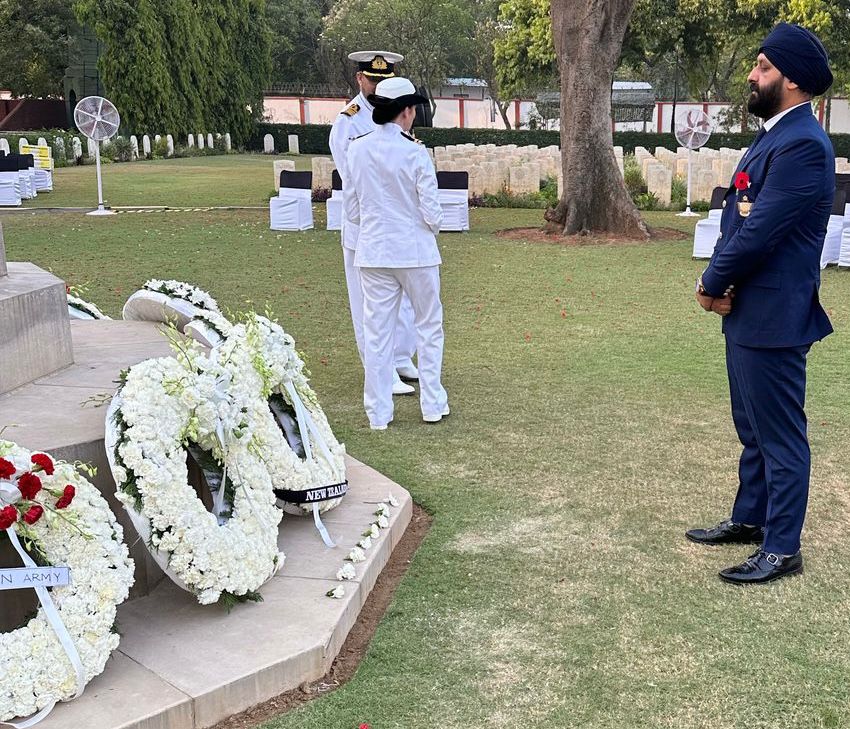Honouring the Forgotten ANZACs: Manu Singh’s Dharam Yudh to Remember the First World War Sacrifice of the Sikhs and the Punjab Regiment
Newspunjab
Chandigarh, May 8, 2025
In a moving tribute to heroism and shared history, Manpreet Singh, also known as Manu Singh, an enthusiastic young leader and community advocate, is advocating for the recognition of the Sikhs and soldiers of the Punjab Regiment who fought alongside the ANZAC troops in World War I. His mission is to ensure that their sacrifices, long overshadowed in mainstream narratives, are etched in the collective memory of Australia. After returning from Australia, he aspires to build a memorial in Punjab to commemorate their heroism and be remembered by future generations.
While the ANZAC story is a cornerstone of Australian identity, Manu Singh is determined to bring the “forgotten Anzacs” – especially the Sikh soldiers who stood shoulder to shoulder with Australian troops at Gallipoli – into the spotlight. On June 4, 1915, the 14th Sikh Regiment lost 379 men in a single day of brutal fighting, symbolising the courage and sacrifice that defined the ANZAC spirit.
The growing recognition of this shared history was evident at this year’s ANZAC Day celebrations in New Delhi, where Australian High Commissioner Barry O’Farrell, New Zealand High Commissioner Patrick John Rata, Australian Army Chief of Defence Staff Damian Scully O’Shea and representatives from the Returned and Services League (RSL) came together to honour all those who served – including Sikh and Indian soldiers who fought alongside the ANZAC forces. Their presence highlighted a deep recognition of this multi-national heritage.
For the past four years, Manu Singh has proudly marched in the ANZAC Day parade in New Delhi, wearing her great-grandfather’s British-Indian Army medals and representing the Sikh regiment that is a member of the RSL that supports war widows. “It was great to hear the applause for our soldiers,” she said. “It was a moment where cultures came together – fulfilling the Anzac ethos of companionship while fulfilling the Sikh tradition of seva (service) and sacrifice.”
Their efforts have resonated deeply, drawing praise from both the Sikh diaspora and Australians. “True remembrance must be inclusive,” Manu Singh asserts. “These men fought the same wars, shared the same struggles and deserve the same respect.”
As ANZAC Day evolves into a broader symbol of courage and unity, Manu Singh’s campaign gains momentum, with growing demands for formal recognition in institutions like the RSL. For him, it’s more than history – it’s a debt of gratitude. “Their story,” he says, “is our shared heritage. Let’s not forget.”


